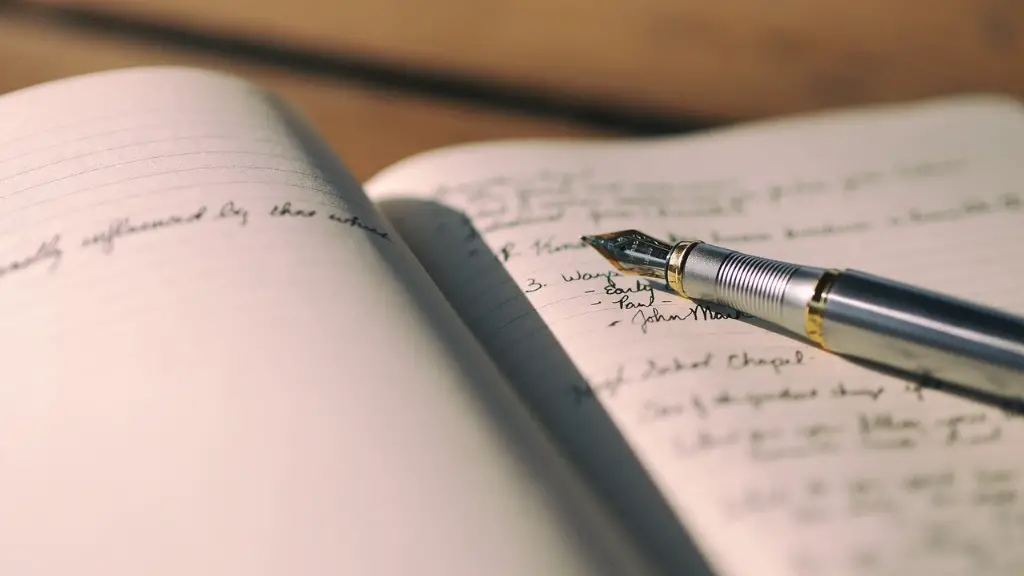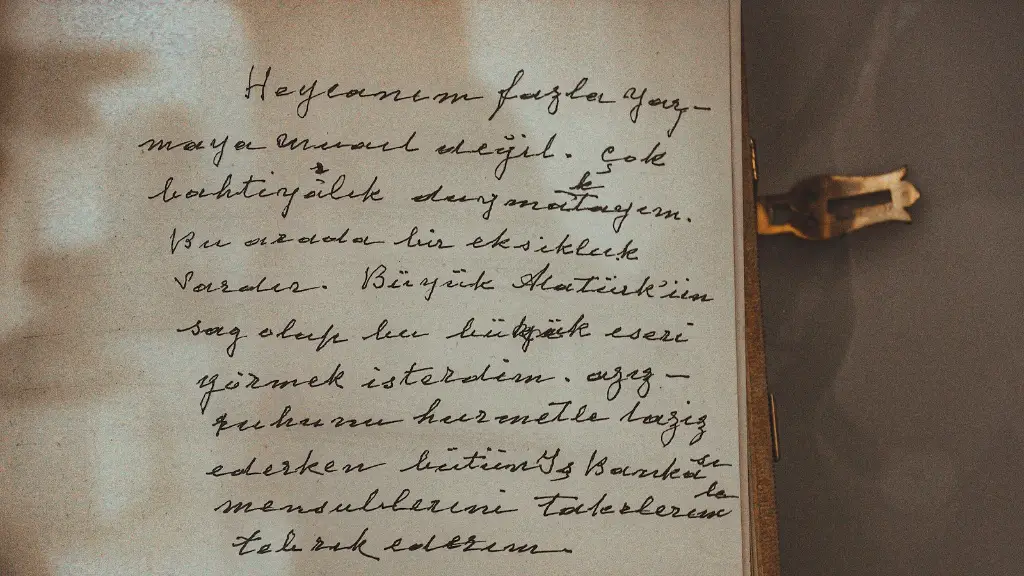Introduction
Writing a poetry research paper can be an intimidating task for students. Even for experienced writers, the process of writing a research paper on poetry can be daunting. However, there are a few helpful tips and guidelines that can help make the process easier. Writing a research paper on poetry requires the student to have an analytical understanding of the poet or poet’s work and to utilize multiple sources of evidence in order to make a convincing argument. Before starting the research paper, it is important to properly analyze the poem and to understand the form, structure, and language of the poem.
Research
The process of writing a research paper requires numerous steps, beginning with researching the poet and poem. If a poet is unknown, the research process must be started by learning about their biography, other works, and their impact on society. With online databases, libraries, and archives the research process can move quickly. It is important to carefully document sources for later use when creating bibliographies for the paper.
Once the process of researching the poem has been completed, the next step is to analyze the poem itself. It is important for the student to read the poem carefully in order to understand the meaning, as well as its tone, imagery, and metaphors. Furthermore, analyzing other poems by the same poet can help students observe patterns, trends, or elements of a poet’s work.
Outlining and Structure
Outlining the research paper is just as important as analyzing the poem itself. Many students make the mistake of not taking enough time to craft a detailed outline that follows the structure of the paper. An effective outline will make process of writing the research paper more efficient, allowing for ease of transitions between sections of the paper.
When writing the paper, it is important to think through the structure of the paper and how to make a strong argument. Support for the argument should be based on concrete evidence, such as literary criticism, literary theory, and close readings of the poem. It is essential to have a clear argument that is consistent throughout the body of the paper.
Citing Sources
When writing a research paper it is also important to cite all sources that are used. The style used for citing sources will depend on the style guide indicated by the professor or the school’s guidelines. Whether using MLA, APA, or Chicago style, it is important to adhere to the style guide indicated in order to have a complete and well-written paper.
Drafting
Once the research and outlining is complete, the process of drafting a poetry research paper can begin. When constructing the first draft, it is especially useful to re-read the poem and to recall evidence that supports the argument made about the poem. Additionally, it is important to proofread and edit the first draft in order to make the argument more clear and to check for any grammar or spelling errors.
Conclusion
Writing a research paper on poetry does not have to be a difficult task. By taking the time to properly research, analyze, and structure the paper, the process of writing a successful poetry research paper becomes easier. Following these steps— researching the poet, understanding the poem itself, outlining the paper, citing sources, and drafting the paper— will ensure a great and thorough paper is prepared.
Using Imagery and Metaphor
The use of imagery and metaphor is an essential element when writing poetry. Imagery can be used to provide vivid descriptions of scenes and characters, while metaphor can be used to create deeper meanings and analogies. Understanding the use of imagery and metaphor can help to break down the poem and discover hidden meanings.
Students researching poetry should pay special attentions to the poetic devices used to further the story or allusions to other works, such as classical mythology. Paying close attention to the language, metaphors, and imagery used by the poet can help to uncover the true meaning of the poem. By breaking down the element of the poem and focusing on individual elements, it is much easier to make valid conclusions about the poem and its author.
Understanding Rhyme and Meter
Rhyme and meter are two of the most important and complex elements of poetry. These two poetic techniques are used to help the poet structure their poem to provide rhythm and flow. Most commonly, rhyme and meter help to provide emphasis to certain words or phrases to give them additional meaning.
When analyzing poetry, it is important to pay attention to the written rhyme schemes and meter of the poem. There are various patterns of rhyme, such as couplets, tercets, and quatrains. Meter, usually governed by iambs and trochees, can give the poem an added sense of rhythm to further emphasize certain words, phrases, or thoughts.
Exploring Themes
Themes are the central ideas behind a poem. The themes of a poem can be subtle and can be found in the language and images used. Exploring the poem through a thematic analysis can help to identify the true meaning of the poem and the message that the poet is conveying.
When researching a poem, it is important to identify the primary theme of the poem and to look for evidence in the poem that can be used to support the claim. By paying attention to the language of a poem, students can uncover the deeper meanings within the poem and can move past the literal interpretation of the poem.
Analyzing Discourse and Context
In addition to the written aspects of a poem, it is important to consider the historical and social context of the poem. The context of the poem can be used to further understand its deeper meanings and implications. Collingwood’s theory of re-enactment can be used to reconstruct the context of a poem in order to gain a deeper understanding of the poem.
When researching a poem, it is important to consider the the time period in which the poem was written, the author’s other works, and the broader literary context of the poem. Examining the discourse used by the poet can help to uncover the true message of the poem and the impact on society at the time.
Finding Inspiration
When researching poetry, it is important for the student to find inspiration in the form of other authors, critics, and theorists. Studying the works of other authors can provide valuable insight into a poem and can inform the student’s own interpretations.
In addition to studying critics and theorists, the student should also look to other poets and authors as sources of inspiration. The student can explore the works of similar poets or authors to learn how they use their poetic elements in their work. This can help students to gain insight into the language, imagery, and themes present in the poem being researched.


